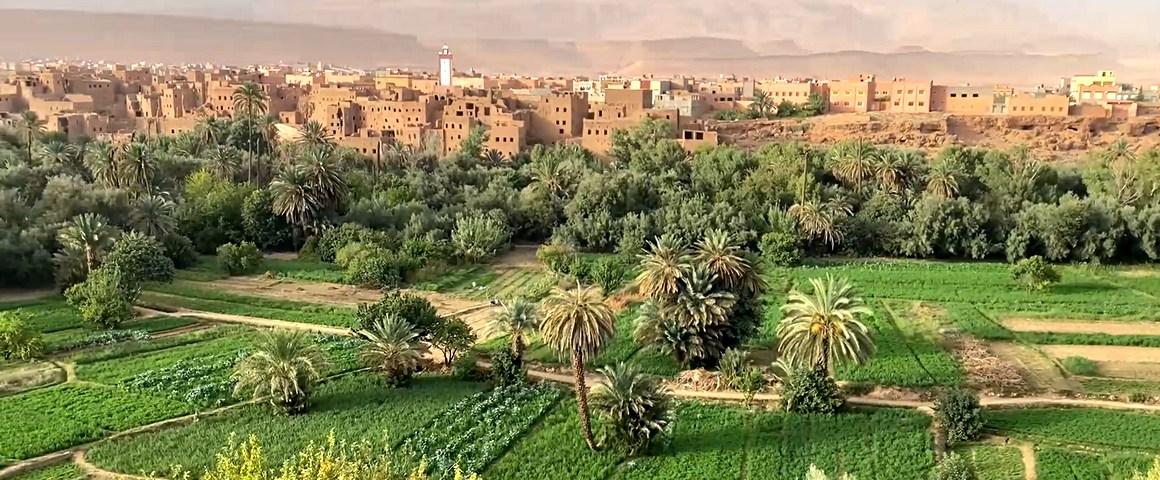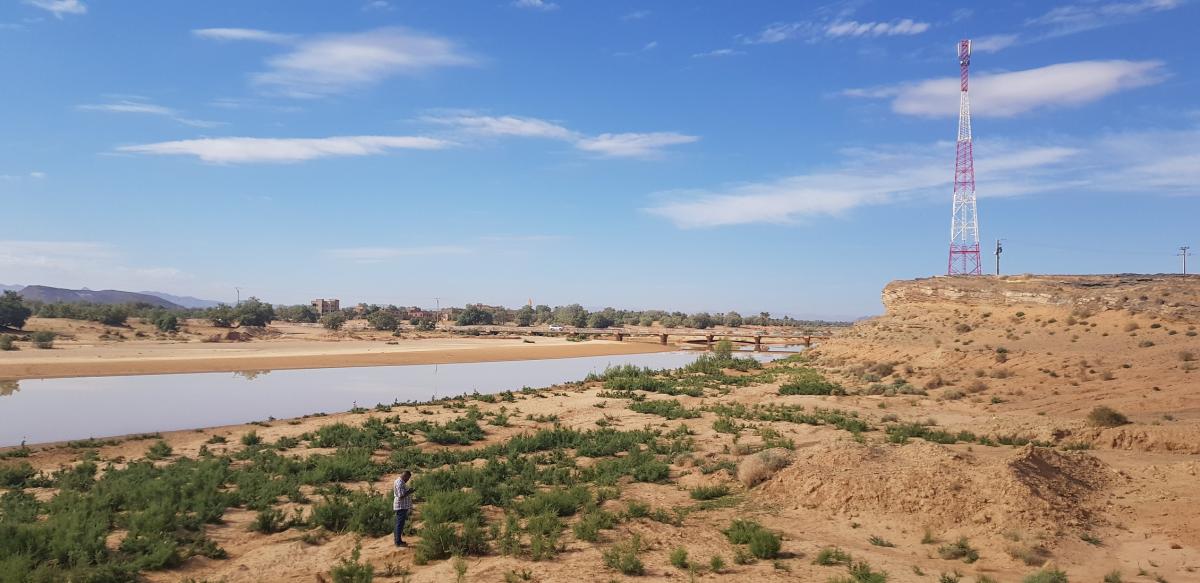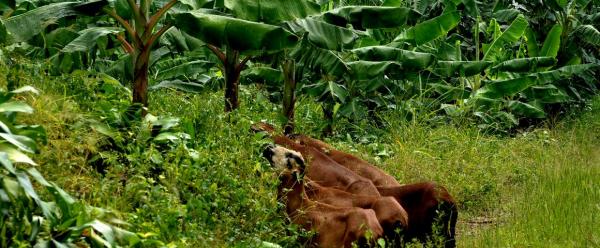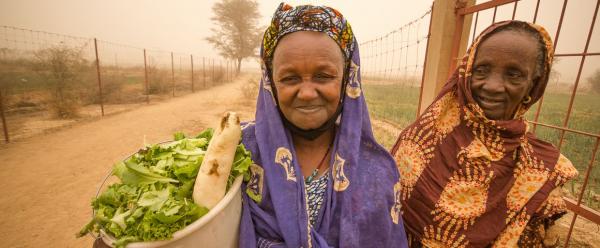Science at work 6 November 2025
- Home
- CIRAD news
- News
- Agricultural innovations in the oases and arid zones of North Africa
Supporting innovation on family farms in southern North Africa

Tinghir oasis and town in southern Morocco © E. El Meknassi Youssoufi
Contrary to popular belief, the oasis farming systems of southern North Africa are not just varied but also very dynamic. In southern Tunisia, for instance, new palm groves have developed across several thousand hectares in recent years. However, agricultural intensification is now threatening these territories, which were already under pressure, notably as regards access to water supplies. To combat over-exploitation of aquifers, it is vital to embark upon a transition towards more sustainable practices.
From 2019 to 2024, the Massire project worked with more than 500 family farms in Morocco, Algeria and Tunisia. Cooperatives, NGOs, the local authorities and students all participated in the project, which involved more than 1300 local players in all. The Massire project was led by a consortium comprising INAT and INRGREF in Tunisia, CREAD and the University of Tipaza in Algeria , ENA Meknès and IAV Hassan II in Morocco, and CLERSE/Lille, INRAE and CIRAD in France*. It was coordinated by CIRAD and funded by IFAD and the partner organizations.
Family farms at the heart of innovations: banking on "multi-player processes"
Waste water recycling, agroecological practices, organic product certification, collective well management, and so on: there is no shortage of promising innovations, whether technical or organizational. To analyse those innovations, the Massire project was banking on an approach centring on involving farmers. Throughout the project, discussions were organized with grassroots players to define the issues and difficulties and list the technical and organizational solutions they considered relevant. Those discussions fell under the umbrella term of "multi-player processes".
In all, 17 multi-player processes were set up, providing a number of results. In particular, two waste water recycling demonstration units were built, a consultation was launched with a view to collective aquifer management, a farmers' group was helped to make the transition to organic date production, and irrigators' associations in all three countries were helped to improve shared well management.
As 2024 draws to a close, talks and collaborations between the participants in most of those multi-player processes are continuing, outside the framework of the project. In addition to practical guides, a set of policy briefs (in French) make policy recommendations concerning specific topics, such as the development of agricultural value chains for local products, or artificial groundwater recharging. This open approach has proved its efficacy in terms of co-construction with local players, and also has strong potential to be reproduced in other areas and for other topics.
* INAT: Institut National Agronomique de Tunisie; INRGREF: Institut National de la Recherche en Génie Rural, Eaux et Forêts; CREAD: Centre International de Recherche Agronomique pour le Développement; University of Tipaza: Centre universitaire Morsli Abdallah, Tipaza; ENA Meknès: Ecole Nationale d’Agriculture de Meknès; IAV Hassan II: Institut Agronomique et Vétérinaire Hassan II; CLERSE: Centre Lillois d’Etudes et de Recherches Sociologiques et Economiques, University of Lille; INRAE: French National Research Institute for Agriculture, Food and Environment




























